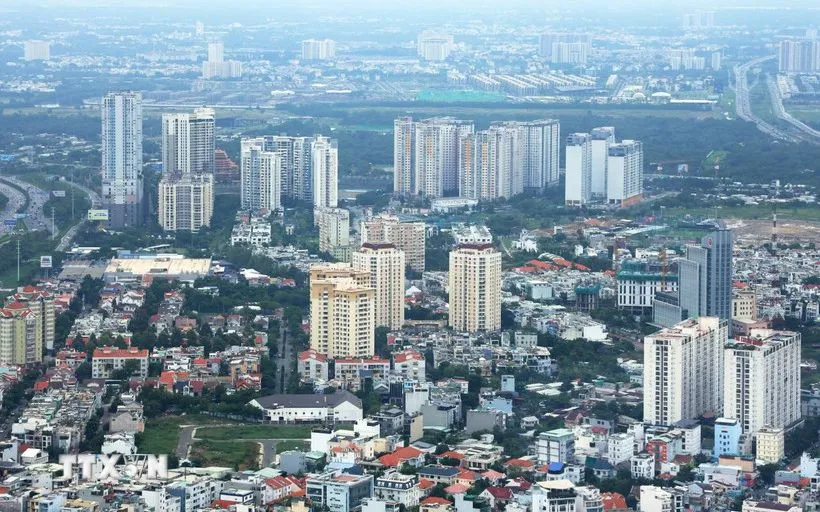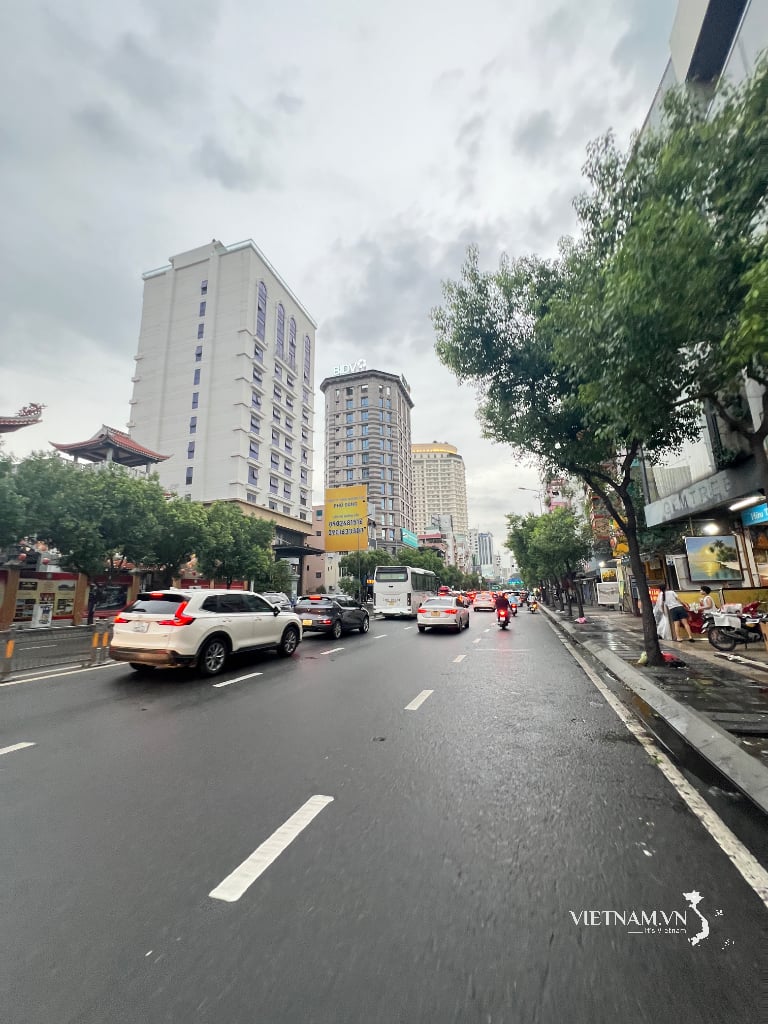
Housing prices in the South are increasing, making it difficult for those with real needs to access them.
In the context of economic recovery still facing many challenges, housing prices in the Southern region, especially Ho Chi Minh City and the Southeast provinces, the Mekong Delta, continue to increase. Meanwhile, people with real needs - workers, young laborers, and middle-income households - are increasingly finding it difficult to qualify to buy a house.
Housing prices rise, supply is scarce
According to statistics from real estate market research units, in the first 8 months of 2025, apartment prices in Ho Chi Minh City increased by an average of 6 - 8% compared to the same period last year. In Hanoi, the increase was similar, but it is worth noting that in the South, housing prices in satellite cities such as Binh Duong (old), Dong Nai, Ba Ria - Vung Tau (old) also increased by 5 - 7%. In particular, Ho Chi Minh City recorded an average primary apartment price of over 55 million VND/m2, double that of five years ago. Some projects in the East and South of the city have exceeded 80 million VND/m2.
The shortage of supply in the mid-range and low-end segments is evident. For many years, new projects have focused mainly on the mid- and high-end segments, while the real demand of people lies in the price segment of 1-2 billion VND/unit.
Chairman of the Ho Chi Minh City Real Estate Association (HoREA) Le Hoang Chau said that housing prices have not decreased due to legal procedures that have delayed the implementation of many projects, increased land and material costs, and the trend of investors shifting to the high-end segment to maximize profits.
The income of workers in the South is increasing slowly, not keeping up with the increase in housing prices. A survey by the Ho Chi Minh City Institute for Development Studies shows that the average income of a young worker in the industrial and service sectors is about 12 - 18 million VND/month. At this level, buying an apartment worth 2.5 - 3 billion VND is almost out of reach.
Ms. Le Thi Tam, a worker at Song Than 1 Industrial Park (Di An Ward, Ho Chi Minh City), shared: “My husband and I have worked for more than ten years and have saved nearly 600 million VND. We want to borrow more from the bank to buy an apartment worth 1.5 - 2 billion VND, but we still do not qualify because of our limited ability to repay the debt.”
Not only workers, many young families in Ho Chi Minh City and Dong Nai are also in the same situation. A young official working in Binh Tho Ward, Ho Chi Minh City (former Thu Duc City area) said that if I borrow from the bank to buy a house, I will have to pay 18-20 million VND per month, which is almost equal to my current income. That is very risky, so I still have to rent a house to live in.
According to the Ministry of Construction, the price-to-income ratio in Ho Chi Minh City and neighboring provinces currently ranges from 20 to 22 times, much higher than the reasonable level of 5 to 7 times. This clearly reflects the gap between affordability and housing prices in the Southern region.

In Ho Chi Minh City, the plan to build 35,000 social housing units in the 2021-2025 period has been completed by less than 25%.
Need fundamental solutions
In Ho Chi Minh City, the plan to build 35,000 social housing units in the 2021-2025 period has been completed by less than 25%. Many projects are still stuck in land procedures and site clearance. In Dong Nai province, or the old Ba Ria - Vung Tau area, many worker housing projects have been approved but implementation has been slow due to capital difficulties and low profit limits, making businesses not interested.
The government has implemented a VND120,000 billion credit package for social housing, worker housing and renovation of old apartments, with preferential interest rates 1.5 - 2% higher than the market. However, implementation is still slow. As of the end of August 2025, in Ho Chi Minh City, only three social housing projects have access to this capital source. Many commercial banks are still hesitant to disburse due to concerns about risks. People with real needs also find it difficult to borrow because of the requirements to prove income and complicated paperwork.
Chairman of the Vietnam Real Estate Brokers Association Nguyen Van Dinh said that without a synchronous mechanism to remove the problem, the credit package would hardly be effective. What is more important is to increase the supply of affordable housing projects, otherwise, even with preferential capital, people will not have products to buy.
Experts say that to solve the housing problem for people in the South, a comprehensive strategy is needed. First of all, localities must allocate land funds for social housing and low-cost housing in their planning, along with incentives that are attractive enough for businesses to participate.
In addition, it is necessary to reform legal procedures, shorten the time for project licensing, thereby reducing costs for businesses, contributing to lowering product prices. Consider adjusting the profit ceiling of social housing projects, applying flexibly to each locality to encourage investment. At the same time, develop a model of long-term rental housing, to reduce the pressure of home ownership in the context of too high selling prices.
Ho Chi Minh City is implementing a social housing development program for the 2026-2035 period, aiming to add 200,000 units. The city will reserve land in new urban areas and simplify procedures to encourage businesses to participate.
Housing prices in the South are still on the rise, while the supply of affordable housing and social housing is limited. People with real needs - especially workers, laborers, and young households - are increasingly finding it difficult to access housing. To resolve this paradox, it is necessary to synchronize solutions on planning, legality, credit, and incentive mechanisms for businesses. Otherwise, the dream of settling down for millions of people in the South will continue, creating great pressure on the region's socio-economic development.
Source: https://vtv.vn/can-ho-25-3-ty-dong-ngoai-tam-voi-nguoi-luong-12-18-trieu-dong-thang-100250925174745016.htm






![[Photo] Prime Minister Pham Minh Chinh attends the groundbreaking ceremony of two key projects in Hai Phong city](https://vphoto.vietnam.vn/thumb/1200x675/vietnam/resource/IMAGE/2025/9/27/6adba56d5d94403093a074ac6496ec9d)




























































































Comment (0)